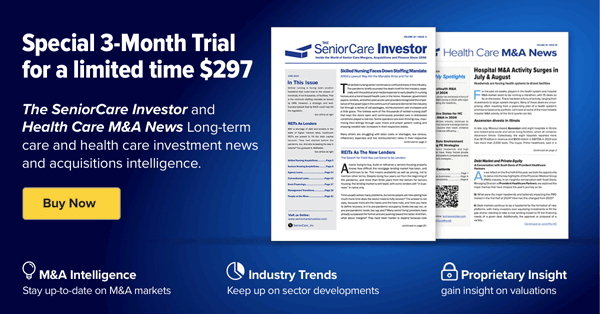Despite a slow February, eHealth M&A activity remained busy throughout the month. There were 16 deals publicly announced transactions, according to our Deal Search Online database, a slight drop from the 19 disclosed in January. That’s roughly 23% of all announced transactions so far in 2020. Spending was a little lighter, however, with dollar volume just north of $382 million, compared to $1.76 billion in January.
The largest deal came from Germany, where CompuGroup Medical AG (XETRA: COP) acquired parts of Cerner Corporation‘s (NASDAQ: CERN) IT Healthcare portfolio for $247.6 million. The portfolio includes medico and Soarian Integrated Care, a leading health information systems (HIS) in Germany; Selene, a leading HIS for public hospitals in Spain, and Soarian Health Archive, a document archiving solution for healthcare providers. In 2019, the portfolio generated revenue of $81.4 million and EBITDA of $14.3 million.
This acquisition expands CompuGroup Medical’s presence in Germany and Spain, but also gives a chance for Cerner to tighten its portfolio, improve operating efficiencies and establish a more focused client base. The customer base of the medico product today consists of 251 hospitals in Germany and the customer base of the Selene product consists of 65 hospitals in Spain. Barclays acted as exclusive financial advisor to Cerner.
Private equity also played a role in eHealth M&A in February. Symplr, a portfolio company of Clearlake Capital Group and SkyKnight Capital, made a move for The Patient Safety Company (TPSC), which provides governance, risk and compliance solutions, centered around the improvement of patient safety, to healthcare organizations. Main Capital Partners, a Dutch private equity firm, bought TPSC back in June 2014 and is exiting its majority investment in this deal.
The combination of symplr and TPSC expands the Symplr’s leading end-to-end GRC platform of scale to include patient safety and incident tracking and reporting. Healthcare Growth Partners served as financial advisor to symplr.
Although February was a very slow month for healthcare deals, if history is any indication, we expect a rebound in March as the first quarter comes to a close. From February 2019 to that following March, there was a roughly 14% increase in deals. We’ll keep a lookout.


